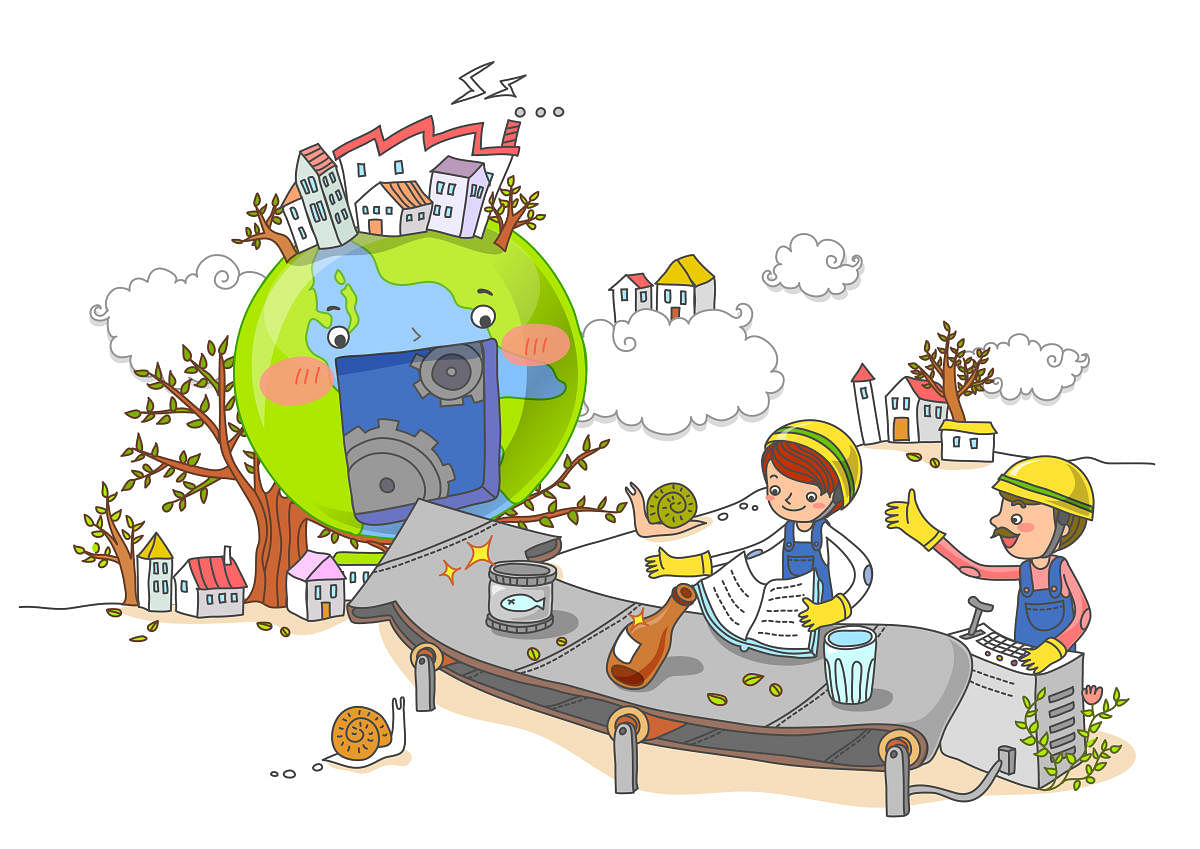
Mahatma Gandhi once said, “Earth provides enough to satisfy every man’s need but not every man’s greed.” These words hold relevance for the present day and age. The ecological imbalance staring us in the face is a direct result of this greed. Deforestation for commercial and industrial needs, an alarming increase in population and an even more alarming quantity of toxic waste have damaged our planet.
Somewhere along the fast track of industrial and economic growth, we seem to have ignored, actually dismissed, the science of the relationship between organisms and the environment. Even our launch industry, which has put us on the map of space conquests, has a tremendous impact on the environment and our health. We have woken up to this fact only now. Progress is all very well, but sustained development is a necessity today. Striking a balance between industry and ecology is what we are trying to do and the challenge is to make the shift from economic globalisation to localising development using nature’s wisdom with innovative sustainable techniques to bring about revolutionary changes.
How can education help?
Change can happen only when we educate our youth. So, is our education system geared to meet the challenge of the grand design of replenishing our natural resources and restoring ecological sanity? “Very few institutions offer such courses at the postgraduate level. At times, some enthusiastic students who study life sciences in regular colleges at the degree level get disheartened because they cannot connect at the practical level as the subjects are taught in a dry manner,” says Dr Ali Khwaja, a well-known career counsellor.
I spoke to a group of students to gauge the level of awareness and interest shown by the ambitious youth towards green career options. Around 10% were aware of the options and even willing to take up one. Prema, an undergraduate student, hopes to major in Environmental Sciences and pursue a career in resource management. Rajat, on the other hand, is a keen wildlife photographer, who wants to work with World Wide Fund For Nature (WWF) programmes. The youngsters spoke enthusiastically about eco-friendly products but seemed a little unsure, and rightly so, of green careers being lucrative options. However, they were visibly impressed when they heard that India ranked among the top six countries which have contributed to more than 70% of new jobs in the renewable energy sector.
Available options
Chandrasekar, a professor, feels that while there are many postgraduate diplomas and regular two-year Masters programmes in place, “we should be looking at more full-time programmes at the pre-university and under-graduation levels. The seeds should be sown in young minds to take the metaphor further.”
The good news is that there are some such institutions in Bengaluru. Prakriya Green Wisdom School & Bhoomi College is one such initiative that believes in earth-conscious education. Their alumni boast of quite a few IT professionals who happily gave up a flourishing career and chose to join hands. Bengaluru also has a fair share of leading institutions who offer specialised courses, mostly at the postgraduate level.
The Indian Institute of Science offers a four-year Bachelor of Science degree with Human Sciences and Natural Sciences. The National Institute of Advanced Studies, National Centre for Biological Sciences, in Bengaluru; Tata Institute of Fundamental Research and Tata Institute of Social Sciences in Mumbai, and the Forest Research Institute, Dehradun offer a number of green courses.
Elsewhere in the country, we have Guwahati University which offers MSc in Environmental Sciences. Tata Institute of Social Sciences has MSc in Disaster Mitigation and Sustainable Development. Indian Institute of Ecology and Environment in New Delhi has interesting modules like Ecological Tourism, Environmental Oceanography, Environmental Education, Geographic Information System, and Health and Nutrition. Agriculture and horticulture colleges also have some courses that emphasise on ecology and sustainable practices. One can also pursue an MSc in Industrial Ecology.
A career naturally presupposes training for a specific job. So, what kind of jobs are eco-friendly? We have a long list of key work areas like environmental engineering, conservation sector, sustainability, renewable energy sector, green entrepreneurship, agricultural science, waste management and urban planning which includes green builders and architects. There is also the education department which is constantly trying to pull up its socks to meet new and varied requirements. One could train to be a solar and wind energy consultant, soil and plant scientist, or be a sustainability worker who oversees a corporation’s approach to the environment and energy consumption.
Rajesh, a corporate official, points out that green careers exist on two levels. On one hand, we have companies, whose core business is restoring and preserving natural resources, working with renewable energy methods, developing clean technology or focussing on water conservation, while on the other hand, we have those that lean heavily on their NGO partners to take care of their mandatory CSR requirements.
Specialisation
Furthermore, there are green businesses, which are designed to be environment-friendly in their products and processes. The Skill Council for Green Jobs is working to create decent dignified careers for millions of unemployed in rural areas and far-flung urban pockets. The activities include human rights, providing a favourable work environment, fair business practices, conservation and preservation of life and resources with sustaining industrial and economic progress.
Today, going green in business is a welcome trend but is the average youth willing to shift focus from the hitherto coveted careers? At the same time, are there enough options and courses for those who want to take the sustainable path? However, what is promising is the fact that the wheel has been set in motion and it will gather momentum as awareness increases.